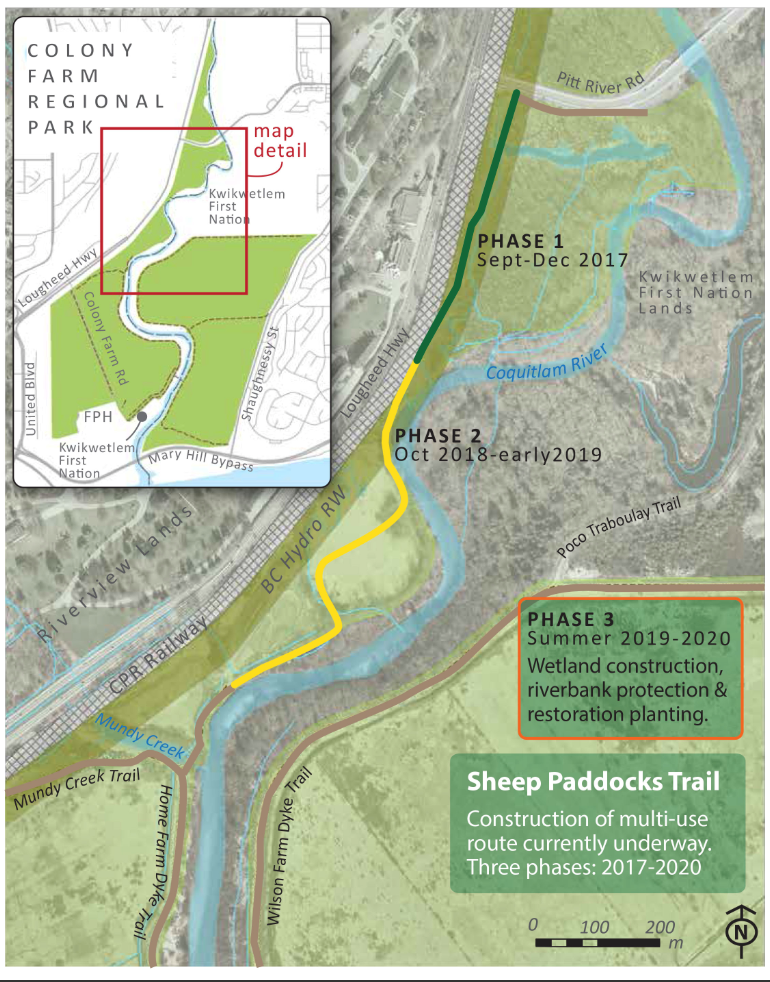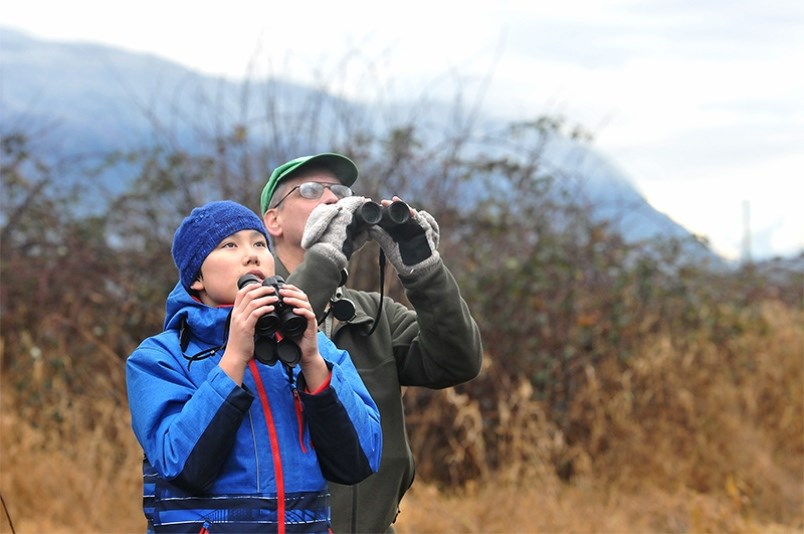A popular Tri-City hiking and cycling trail will be ready for New Years’ resolutions, according to a spokesperson for Metro Vancouver.
A replacement project for the most vulnerable sections of the Colony Farm Sheep Paddocks Trail began in 2017. The plans called for the trail to be moved to higher ground and link Port Coquitlam’s Traboulay Trail at Pitt River Road with Colony Farm’s Home Farm Dyke and Mundy Creek Trails.
Metro Vancouver — which overseas green spaces for Coquitlam and Port Coquitlam — expects the project to be completed by Dec. 31, but according to Sarah Lusk, a spokesperson for regional body, that will depend on the weather.
“In-stream work has been completed and currently they are working on the pond, trail work and then planting will follow,” Lusk wrote in an email to The Tri-City News.

The Colony Farm Sheep Paddocks Trail suffered years of erosion and flooding from the nearby Coquitlam River. And in a recent provincial report detailing the risks from climate change-induced natural hazards, Colony Farm was noted as one of the most vulnerable regions of the Tri-Cities should a major Fraser River flood event strike the Lower Mainland.
The project includes a 1.6 km multi-use trail, riverbank protection along the Coquitlam River, stream restoration and wetland enhancement, according to project documents.
In the past, the trail provided pedestrians with an alternative to travelling along Lougheed Highway and was popular among hikers, walkers trail runners and birders.
Located at a critical ecological location on the Fraser River, the trail runs through giant cottonwood trees offering picturesque views of the Coquitlam River and surrounding habitat frequented by a variety of wildlife.
A 2013 Metro Vancouver report noted evidence of black bears, beavers, Striped skunk, exotic Eastern Grey Squirrel, mink and a total of 30 bird species, including the blue-listed Barn swallow and Great Blue Heron.



